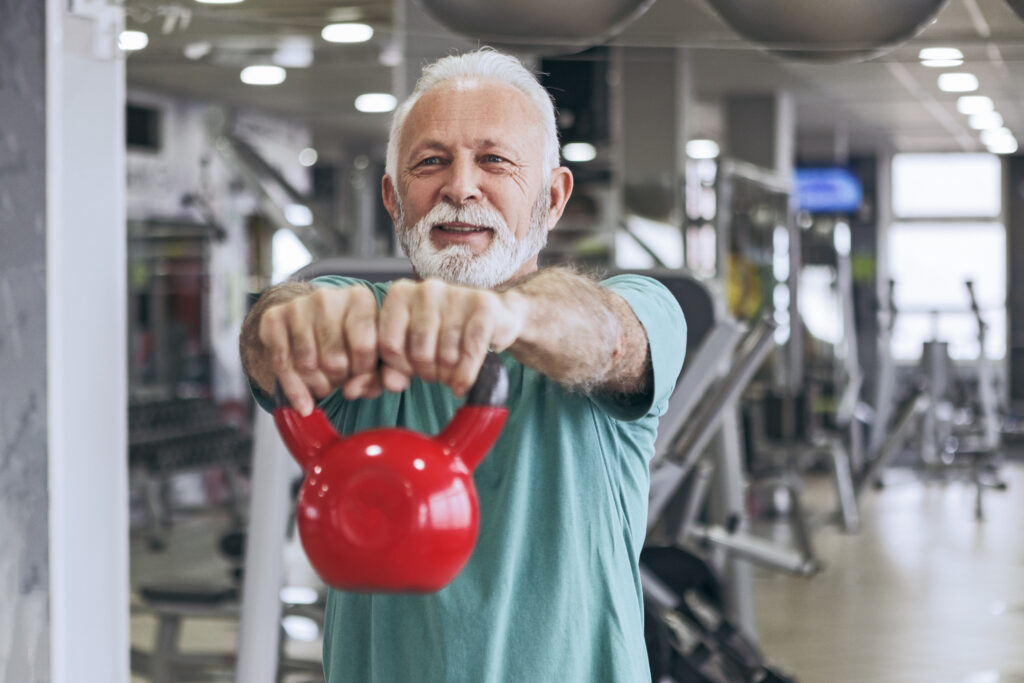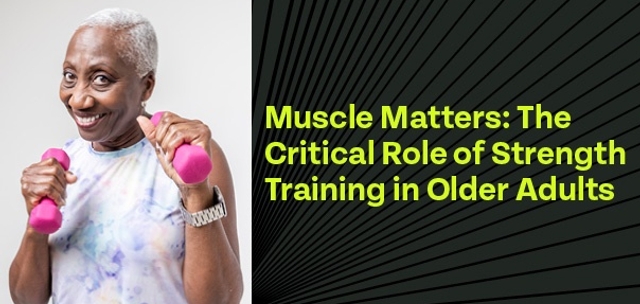ACSM, in partnership with Exercise Connection, offers the Autism Exercise Specialist Certificate®, a unique course and credential that gives you the skills and credibility you need to work with an important and underserved population.
ACSM is all about collaboration, teamwork and creating win-win scenarios. And the relationship between exercise professionals and autistic clients is the ultimate win-win scenario.
Background
According to the Centers for Disease Control and Prevention (CDC), autism spectrum disorder, or “ASD,” is “a developmental disability characterized by persistent impairments in social interaction and the presence of restricted, repetitive patterns of behaviors, interests, or activities that can cause a wide array of difficulties in social interaction, communication, and participation in daily activities.”
This definition is obviously quite broad, and each individual with ASD will exhibit a wholly unique set of skills, behavior patterns and communication styles or deficits. Naturally, some will behave in ways that are relatively more difficult to deal with in a social or exercise setting; others less so.
Critically, as of 2020, 1 in 36 American children were “identified with autism,” according to the CDC.
And as Exercise Connection founder David Geslak, BS, ACSM EP-C, CSCS, points out, many people with disabilities feel intimidated by or out of place in exercise settings. Making a welcoming and workable environment for those with ASD, especially children, is an important contribution to improving the lives and health of those who might not otherwise be able to exercise.
Benefits of Exercise for Those With Autism
According to a 2023 review paper by Ranieri et al., children with autism are more likely to be obese than their peers, and people with intellectual disabilities in general are more likely to be sedentary. Further, Sefen et al. (2020) note that “(physical activity) is effective as a therapeutic strategy for the management of ASD.” However, they caution that research into the long-term effects of physical activity in this population is limited and that because the autistic experience is so individual, therapies need to be built for each patient/client and won’t be a one-size-fits-all intervention.
That’s where exercise professionals like you come in.
The field of exercise intervention in ASD is wide open for innovation, and with the help of the Autism Exercise Specialist Certificate®, you’ll be able to make a tremendous impact at the ground level of a growing field if you choose to pursue this path.
Real-World Experience
To better understand the autism-exercise landscape, I spoke with two fitness pros who’ve earned the Autism Exercise Specialist Certificate® and focused their careers on autism. Kristin Kmack is based in Albany, New York, and Howard Tons is working in Santa Clarita, California. They both were generous enough to share their respective experiences as pioneering small business owners who specialize in working with clients with autism.
Kristin Kmack: Maur Movement
Kmack has a degree in exercise science from Ithaca College as well as a master’s in education, and prior to opening her business, she was working as an adaptive physical education teacher in a private school. Two years into that work, she learned about and went on to earn the Autism Exercise Specialist Certificate® from ACSM and Exercise Connection. Then, one of her students’ moms asked if she might be able to train him individually. Kmack thought about it for some time, wondering especially about liability, and eventually realized that she really could make a career out of training autistic clients. She built a business from the ground up — from below the ground up, in fact, since she began in her 300-square-foot basement. That was the genesis of the thriving Maur Movement, which now occupies a 1,200-square-foot commercial space.
“While still teaching, and shortly after having started Maur Movement, I remember being awestruck at building my client roster to 11 sessions per week,” Kmack says. “Now, four years later, we see an average of 10 and up to 16 clients per day,six days per week.”
Exercise professionals hesitant to work with autistic clients might worry about severe communication limitations or behavioral issues. Kmack works with clients of all abilities, and in thousands of sessions, she’s only had to end one relationship with a client over safety concerns. Otherwise, she’s been able to redirect behaviors and meet her clients where they need to be met.
And her work is rewarding. She says building relationships with her clients, getting to know them and developing rapport with them so that they feel understood when, very often, they aren’t understood in many other parts of their lives, is deeply meaningful.
As for the benefits of earning the Autism Exercise Specialist Certificate®, Kmack has a lot to say. First, she values the relationship she developed with Dave Geslak.
“He was very down to earth, very realistic,” she says. “He had done all of these things. He was open for more conversation, and he’s been my mentor in starting the business and guiding me through it.”
She also sees a lot of value in the Visual Exercise System® and Exercise Buddy App Geslak developed, which includes various tools and picture cards.
“His Visual Exercise System … provides consistency from the small visuals to the bigger visuals to the iPad,” she says. “And a lot of my clients work for technology time, so integrating the iPad into their exercise time is going to help engage them. Bringing the Exercise Buddy app into a PE class was a game changer. Kids who before wouldn’t do anything, I could tell them, ‘Okay, well, you take this turn, and then you can come up and hit the button and mark it off,’ and all of a sudden were really willing to get up and participate.”
Howard Tons: Tectonic Fitness
Tons had worked in the automotive and telecommunications industries for decades before “the whole bottom dropped out” in the 2008 economic crash. In the midst of trying to figure out what would come next, his martial arts instructor suggested he become an exercise professional. Tons got a NASM certification and worked as a trainer for a number of years before, like Kmack, one of his clients asked if he might be able to train her son with autism.
“I’m one of those guys that you can say, ‘Hey, can you build me a rocket to get to the moon?’ I’m like, confident: ‘Yeah. When do you need it?’” Tons says. “So I said yes. I walked out, got in my car, and then said, ‘Oh my God, what did I just do there?’ That started my journey.”
Some quick googling led him to the Autism Exercise Specialist Certificate®, and that was the beginning of a flourishing new component of his business, Tectonic Fitness.
“I still have my clients that I’ve been training for years and years and years, and I still take on neurotypical clients. I have lots of neurotypical clients,” Tons says. “But I became the (autism and exercise) guy out here in Santa Clarita, and it just grew. And it grew to a point where I was kind of pushed to open up a facility.”
In fact, Tons has not only opened that facility but also rented more space in the building than initially expected, adding in group classes and starting up a new program focused on reaction time and reflexes.
Like Kmack, Tons initially worked with clients in his home, and he also traveled to their residences. But the commute began cutting into his time too much. He needed a larger and fixed base of operations, and his business Tectonic Fitness was doing well enough to justify renting out his own space.
“I brought on another trainer, and just growth this year should be 10x. I never dreamt it,” Tons says.
The Bottom Line
Earning the Autism Exercise Specialist Certificate® can be a great career move for those who want to help out an underserved group of clients while becoming foundational members of what is very likely to be an important sector of the wellness industry. With increasing numbers of children being diagnosed with autism, as well as a health care policy landscape finally beginning to prioritize diet and lifestyle intervention, this is a space to watch.
“I have not lost one client in five years,” Tons says.
And of her clients, Kmack says, “They’re the best people in the whole world.”
So, consider embarking on a journey as an autism exercise specialist. It’s the ultimate win-win for you and for clients with autism.




